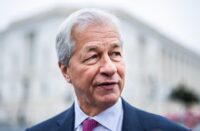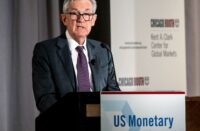Authors: Virginia Furness, Kate Abnett, and Simon Jessop
BAKU (Reuters) – The COP29 climate conference, held on Saturday, witnessed the arrival of a new global marketplace for the buying and selling of carbon credits. Supporters believe that this system will generate billions of dollars for projects aimed to counteract global warming.
The establishment of this marketplace has been a decade in the making, with its credibility hinging on its capacity to ensure a trustworthy system that will effectively lead to a reduction of greenhouse gas emissions and combat climate change.
Carbon credits are a form of environmental currency, generated by activities like tree planting or the establishment of wind farms in less developed countries. Each credit represents a metric ton of emissions reduced or removed from the atmosphere. Countries and corporations can acquire these credits to meet their climate objectives.
Early in the two-week conference, an agreement was reached that would permit a centralized U.N. trading system to commence as early as next year. Subsequent efforts were focused on outlining the specifics of a separate bilateral system for countries to trade directly.
Key issues to finalize included the structuring of a registry to track credits, the amount of information countries should disclose about their deals, and the procedures to follow when projects fail.
The European Union emerged as a significant advocate for stricter U.N. oversight and enhanced transparency in national trades. In contrast, the United States pushed for more autonomy over its deals.
Prior to the agreement, the COP29 presidency had suggested a draft deal that would allow some countries to issue carbon credits through a separate registry system, without requiring a U.N. endorsement.
The finalized text represents a compromise, with the EU providing registry services for countries unable to establish their own ledgers for issuing and tracking credits. The U.S. achieved its goal of ensuring that registration in such a system does not imply a U.N. endorsement of the credits.
Pedro Barata, a representative from the non-profit Environmental Defense Fund, who observed the talks, said the EU had “bent over backwards to accommodate the U.S.” Despite criticisms that the system lacks enforcement power, he affirmed it as a viable international trading system.
While the development of a global market for carbon credits was a significant focus of the Baku talks, bilateral trading commenced in January with Switzerland purchasing credits from Thailand. Numerous other countries have also agreed to transfer credits.
However, these deals remain limited. Establishing a clear set of rules to maintain integrity and transparency, without restricting countries’ ability to participate, should encourage more deal-making.
IETA, a proponent of expanding carbon credit trading, predicts that a U.N.-endorsed market could generate $250 billion annually by 2030, countering an additional 5 billion metric tons of carbon emissions each year.




